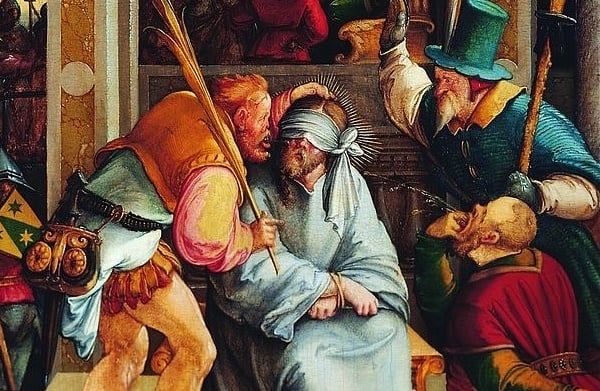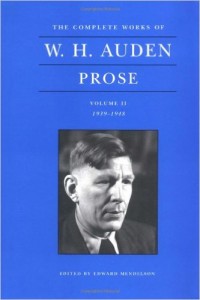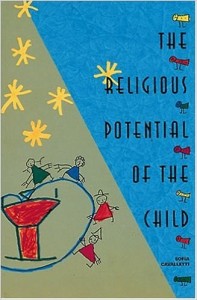
Too much thinking about the family’s key role in the New Evangelization makes family life look like a saccharine utopia of spiritual progress without wounds.
It’s hard to believe how much water has flowed under the bridge since Dominik came into the world. He is now seven years old. I’ve been doing my best to get him to actively participate in Mass and prayer. It’s not as easy for him as it was for me.
Even though I grew up in an officially communist Poland, the country was unofficially permeated by the Catholic faith. What’s more, that Catholic faith seemed exciting and subversive thanks to the remarkable witnesses of not only St. John Paul II (especially late in his pontificate), but also Fr. Jerzy Popieluszko (a martyr) and Fr. Jozef Tischner (a phenomenologist).
Yesterday was Divine Mercy Sunday. Divine Mercy plays a special part in Dominik’s life, because he was born not far from Krakow’s Lagiewniki. The Sanctuary of Divine Mercy is located there. (I should add that the church is ugly as hell on the outside, colloquially called “the ashtray” by locals, but surprisingly beautiful on the inside). It is the de facto center of devotion to Divine Mercy. Sister Faustyna spent the better part of her religious life in the old convent which is still on the grounds and in use. We used to walk to Mass to Lagiewniki, with tiny Dominik in a stroller, when we couldn’t make it to the Dominican parish downtown.

The now seven-year-old Dominik is starting to develop his own tastes about many things. As a rule he does not like going to Mass. It doesn’t matter whether it’s high, low, or middlebrow liturgy (sorry liturgical fetishists!). The thought of going to church is repellent to him. However, once he’s there he does make an attempt to participate actively and I help him along with pointers and explanations. His exploding reading skills (he’s a math whiz too) also give him plenty to engage while at Mass.
Today’s initial resistance was stronger than usual. When he expressed his disapproval I tried to budge him along by saying we were going to see Jesus who loves him. To which he replied, “But I hate Jesus.” This response immediately turned me into a fundamentalist. The words came out of my mouth, but strangely, against my will. I knew I wasn’t supposed to say what I was saying, but I still said the following anyway, “But Jesus died for you and you don’t want to see him?” The inflection of my voice added an unintentional measure of outrage to the whole spectacle. How dare he?!
I immediately thought, “What the hell am I doing? How do I undo this? This sort of thing never worked on me when I was a kid.”
Somewhere on the drive to Mass past Walmart, McDonalds, the garbage dump, and the golf course, the words of W.H. Auden’s prose piece “Symposium” (from the 2nd volume of his collected prose) came back to me as a strange answer to my conundrum:
If a man who professes himself a Christian is asked why he believes Jesus to be the Christ . . . he can give a no more objective answer than the lover: “I believe because He fulfills none of my dreams, because He is in every respect the opposite of what He would be if I could have made Him in my own image.” Thus, if a Christian is asked: “Why Jesus and not Socrates or Buddha or Confucius or Mahomet?” perhaps all he can say is: “None of the others arouse all sides of my being to cry ‘Crucify Him.’”
Some version of this should’ve been my answer to Dominik. After all, didn’t we say precisely that just a few weeks ago as a congregation during the Gospel reading? I will probably beat myself up over missing this teaching moment. It’s not the first time nor the last that the weirdness of Christianity will stump both myself and those whom I love most in my life.
Alexander Pope, who, to my surprise, was a Catholic (but it’s no surprise that the greatest English poet of The Age of Reason was a Catholic) wrote a great line in his Essay on Man about this human tendency to screw up. The line is frequently erroneously attributed to Shakespeare (probably a Catholic too):
To err is human; to forgive, divine.

I’ve recently began reading The Religious Potential of the Child: Experiencing Scripture and Liturgy With Young Children. In it Sofia Cavaletti argues avant la lettre against the New Atheists (curiously, echoing Jean-Luc Marion’s The Erotic Phenomenon) who say religious education is tantamount to child abuse:
The manifestations of serene and peaceful joy the children [many of them from non-religious homes] display in the meeting with the world of God lead us to maintain that the religious experience responds to a deep “hunger” in the child. The religious experience is fundamentally an experience of love, and for the human person, love is essential to life. Man is not satisfied with merely living, but living as one who is love and loving.
This is still part of Dominik’s experience, but his critical spirit adds a new set of hurdles. He has finally arrived the age of reason. I’m a little late reaching for the book above and suspect that I’ll need to delve into The Religious Potential of the Child, 6 to 12 Years Old to fit my son’s very different needs.
Reason and responsibility will need to supplement Dominik’s faith (and boredom and anger and hate) now. There’s nothing profound in all this, because the same goes for me. We’ll both need heavy doses of Divine Mercy to heal the wounds of stymied progress.
As Pope Francis said, the God of Mercy seeks out shattered hearts who have something–like boredom, anger, and hate, which all come too easy–to be saved from. I’m also reminded of Fabrice Hadjadj for whom difference, disharmony, and conflict are the essence of the family. The Cross remains close.
Appropriately enough Divine Mercy Sunday is also Doubting Thomas Sunday. 11 Most Important Critiques of Modernity According to Thomas Pfau is a list of the best books for the Doubting Thomases in your family who can’t bring themselves to believe modernity is all about progress and no wounds.
Please consider making a donation to this blog through the donation button on the upper right side of its homepage.
* * * * * * * * * * * * * * * * * * * * * * * * * * * *
Stay in touch! Like Cosmos the in Lost on Facebook:












